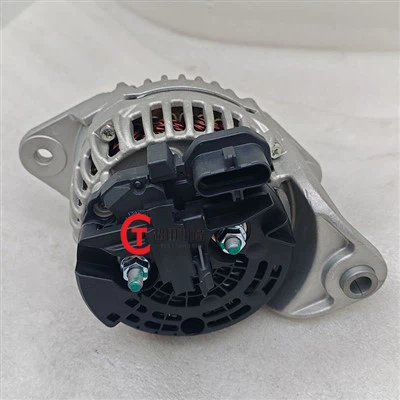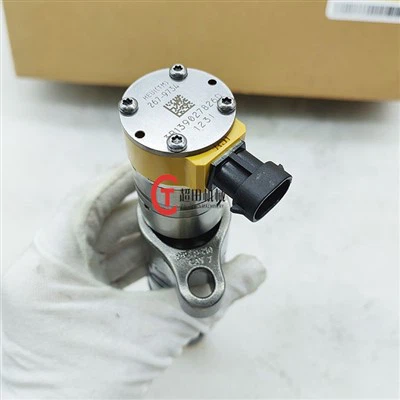A well-functioning cooling system is crucial for the optimal performance and longevity of an engine. Among the key components of this system are the water pump, filter, and radiator. In this blog post, we'll explore the intricate relationship between these parts and answer the question: Can a malfunctioning water pump affect the filter and radiator? As a trusted filter and radiator supplier, we have witnessed firsthand the impact of water pump issues on these vital components.
Understanding the Role of the Water Pump, Filter, and Radiator
Before delving into the potential effects of a malfunctioning water pump, let's briefly review the functions of each component.
The water pump is responsible for circulating coolant throughout the engine. It draws coolant from the radiator, pumps it through the engine block and cylinder head to absorb heat, and then returns the heated coolant to the radiator for cooling. This continuous circulation ensures that the engine operates within a safe temperature range.


The filter, often referred to as a coolant filter, plays a crucial role in maintaining the cleanliness of the coolant. It removes contaminants such as rust, scale, and debris that can accumulate in the cooling system over time. By preventing these particles from circulating with the coolant, the filter helps to protect the engine and other components from damage.
The radiator is the heart of the cooling system. It dissipates the heat absorbed by the coolant from the engine. As the hot coolant flows through the radiator's tubes, it releases heat to the surrounding air, which is then carried away by the radiator fan. This process cools the coolant, allowing it to be recirculated back through the engine.
How a Malfunctioning Water Pump Can Affect the Filter
A malfunctioning water pump can have several negative effects on the filter. One of the most common issues is reduced coolant flow. When the water pump fails to circulate coolant effectively, the flow rate through the filter decreases. This can cause contaminants to accumulate more quickly in the filter, leading to clogging.
A clogged filter restricts the flow of coolant, further exacerbating the problem. As the filter becomes more and more blocked, the pressure in the cooling system increases, which can cause damage to other components. In addition, a clogged filter may not be able to remove contaminants effectively, allowing them to circulate with the coolant and potentially cause damage to the engine.
Another way a malfunctioning water pump can affect the filter is by causing coolant aeration. When the water pump is not functioning properly, air can enter the cooling system. This can lead to the formation of air bubbles in the coolant, which can cause cavitation. Cavitation occurs when the air bubbles collapse, creating high-pressure shock waves that can damage the filter and other components.
How a Malfunctioning Water Pump Can Affect the Radiator
In addition to affecting the filter, a malfunctioning water pump can also have a significant impact on the radiator. Reduced coolant flow is a major concern when it comes to the radiator. Without proper circulation, the hot coolant may not reach the radiator in a timely manner, or it may not flow through the radiator efficiently. This can cause the radiator to overheat, leading to reduced cooling performance.
Overheating can cause the radiator to warp or crack, which can result in coolant leaks. A coolant leak not only reduces the effectiveness of the cooling system but can also lead to engine damage if the coolant level drops too low. In addition, a malfunctioning water pump can cause the radiator to become clogged with debris. As the coolant flow decreases, contaminants are more likely to settle in the radiator, blocking the tubes and reducing the radiator's ability to dissipate heat.
Signs of a Malfunctioning Water Pump
It's important to be aware of the signs of a malfunctioning water pump so that you can address the issue before it causes serious damage to the filter and radiator. Some common signs of a failing water pump include:
- Coolant leaks: If you notice coolant pooling under your vehicle, it could be a sign of a leaking water pump.
- Overheating engine: A malfunctioning water pump may not be able to circulate coolant effectively, causing the engine to overheat.
- Strange noises: A whining or grinding noise coming from the water pump area could indicate a problem with the pump's bearings or impeller.
- Low coolant level: If you find yourself having to add coolant frequently, it could be a sign of a coolant leak or a problem with the water pump.
- Steam coming from the radiator: This is a clear indication that the engine is overheating, which could be due to a malfunctioning water pump.
Preventive Maintenance and Solutions
To prevent a malfunctioning water pump from affecting the filter and radiator, it's important to perform regular maintenance on your cooling system. This includes:
- Checking the coolant level regularly: Make sure the coolant level is within the recommended range and top it up if necessary.
- Inspecting the water pump for leaks and damage: Look for signs of coolant leaks around the water pump and check for any visible damage to the pump itself.
- Replacing the coolant filter at the recommended intervals: This will help to ensure that the coolant remains clean and free of contaminants.
- Flushing the cooling system periodically: This removes any built-up contaminants and helps to maintain the efficiency of the cooling system.
If you suspect that your water pump is malfunctioning, it's important to have it inspected and replaced as soon as possible. A professional mechanic can diagnose the problem and recommend the appropriate course of action.
In addition to maintaining your water pump, it's also important to choose high-quality filters and radiators. As a filter and radiator supplier, we offer a wide range of products that are designed to meet the highest standards of quality and performance. Our filters are made from high-quality materials and are designed to effectively remove contaminants from the coolant, while our radiators are engineered to provide efficient cooling and long-lasting durability.
Related Engine Parts
If you're in need of other engine parts, we also offer a variety of fuel injectors and fuel injection pumps. For example, we have the 185-5754 1855754 Fuel Injector for 3054 3054B Engine, the 10R-2995 Fuel Injector Pump for 3126E Diesel Engine, and the 5267707 Fuel Injection Pump for 6BT 5.9 Engine. These parts are essential for the proper operation of your engine and are designed to provide reliable performance.
Conclusion
In conclusion, a malfunctioning water pump can have a significant impact on the filter and radiator. Reduced coolant flow, coolant aeration, and other issues can cause the filter to clog and the radiator to overheat, leading to potential damage to the engine and other components. By being aware of the signs of a malfunctioning water pump and performing regular maintenance on your cooling system, you can prevent these problems from occurring.
As a filter and radiator supplier, we are committed to providing our customers with high-quality products and expert advice. If you have any questions about your cooling system or need assistance in choosing the right filter or radiator for your vehicle, please don't hesitate to contact us. We look forward to helping you keep your engine running smoothly.
References
- Automotive Cooling System Basics. (n.d.). Retrieved from [Website Name]
- How to Maintain Your Vehicle's Cooling System. (n.d.). Retrieved from [Website Name]
- Signs of a Failing Water Pump. (n.d.). Retrieved from [Website Name]






